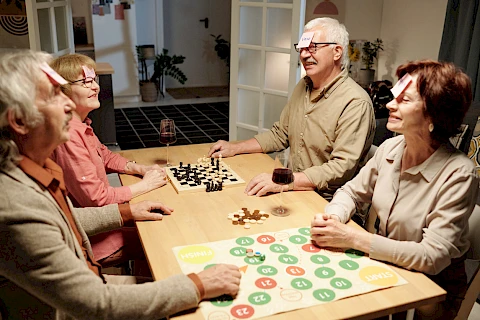
Social engagement is a significant factor in supporting seniors with Alzheimer's disease, dementia, and other forms of memory loss. Meaningful interactions and connections can have a profound impact on their well-being and quality of life. Engaging with others can stimulate cognitive functions, boost mood, and create a sense of purpose.
Promoting Meaningful Interactions
To foster social engagement in memory care settings, consider incorporating activities that are both stimulating and enjoyable for seniors. Group activities such as music therapy, art sessions, and reminiscence therapy can provide cognitive stimulation while allowing residents to share their experiences and emotions. These activities should be tailored to individual preferences and abilities to ensure they are engaging and accessible.
Encouraging participation in social groups and events can also be beneficial. Creating opportunities for residents to interact with peers in a relaxed setting, such as group games or social gatherings, helps build relationships and reduces feelings of isolation. Regularly scheduled activities provide a routine that helps seniors feel connected and involved.
Engaging socially can also have physical benefits. Activities like dancing, gardening, or even walking with a friend encourage movement. This type of physical activity is beneficial for overall health, improving mobility and stamina.
Maintaining Connections
Maintaining connections with family and friends is another aspect of social engagement. Regular visits, phone calls, or video chats can help seniors stay connected with loved ones. For residents who may have difficulty initiating or maintaining conversations, caregivers can facilitate these interactions by arranging regular contact and assisting with communication tools.
Incorporating familiar faces and places into the daily routine can also be comforting. For example, displaying family photos or mementos from past events can help spark memories and facilitate conversations. Creating a personalized environment that reflects the individual's history and interests can provide a sense of continuity and connection.
Strategies for Promoting Social Engagement
Creating opportunities for social interaction requires a thoughtful approach, especially for seniors in memory care.
Creating a Supportive Environment
A supportive environment plays a key part in fostering social engagement. Staff and caregivers should be trained to encourage interactions, provide emotional support, and create a welcoming atmosphere. Simple gestures, like warm greetings and encouraging words, can make a significant difference. Positive reinforcement and patience are essential when helping residents engage in activities or social interactions.
Encouraging Group Activities and Hobbies
Activities like puzzles, arts and crafts, and music sessions offer great ways for seniors to interact. Group activities are effective for promoting teamwork and friendships. Even simple games like bingo or card games can be engaging and fun.
Utilizing Technology for Virtual Interactions
For those who can't always have in-person visits, technology offers an excellent alternative. Video calls and social media can help seniors connect with loved ones far away. Virtual interactions can be a lifeline, especially during times of social distancing.
Encouraging Connection with Friends and Family
Family provides emotional support and a sense of continuity. Regular visits, whether in-person or virtual, can maintain and strengthen family bonds.
Value of Professional Support in Memory Care Settings
Sometimes, professional help is needed to facilitate social interactions effectively. Trained caregivers know how to engage seniors in activities that are both enjoyable and beneficial. They can identify what works best for each individual and adjust activities accordingly. Specialized programs like Alzheimer's and Dementia Care services often include structured activities designed to promote mental and physical well-being. These programs offer a balanced approach to memory care, combining social interactions with therapeutic activities.
If you're caring for a loved one with memory loss, consider reaching out for professional support. Contact Senior Helpers York and Adams Counties for professional senior care services in York, Hanover, Gettysburg, Red Lion, and surrounding areas.